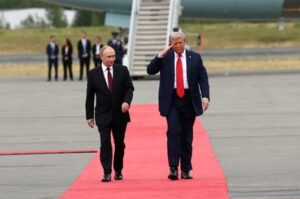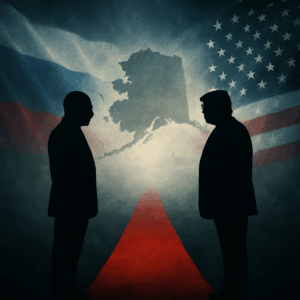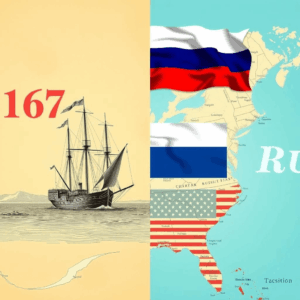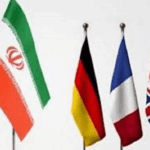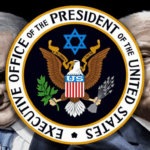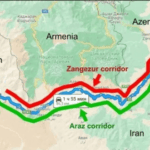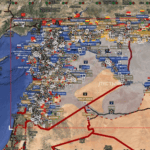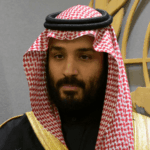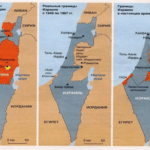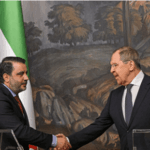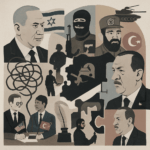«Сайкс-Пико мертв» — заявил американский посол, чья собственная карьера стала возможной благодаря системе, которую он теперь клеймит. Том Брэк, уникальный гибрид ливанского патриота и трамповского дипломата, объявил о конце западного вмешательства на Ближнем Востоке. Но почему это прозвучало на следующий день после его встречи с Асадом? И не готовит ли Вашингтон под видом «деколонизации» новую перекройку карты региона — уже без европейцев, но с теми же имперскими амбициями?
От имени сына Захле, но с оглядкой на коридоры Вашингтона – так, пожалуй, можно описать неожиданный демарш Тома Брэка, посла США в Турции и спецпредставителя по Сирии. Его пост в социальной сети X от 25 мая прозвучал как гром среди ясного неба: жесткое осуждение столетнего колониального наследия и заявление о конце эпохи западного вмешательства. Но за красивыми словами, услаждающими слух многих в регионе, скрывается тревожная неопределенность и вопросы без ответов.
Lebanon's Son with an American Passport: Who is Tom Brack? He is an extraordinary figure in American diplomacy. His connection to the region is deep and personal. A descendant of a Lebanese family from the town of Zahle, he proudly restored Lebanese citizenship for himself and his children in 2018, calling the event joyful and meaningful.
Fluent in Arabic, immersed in the history and political thought of the Arab world, he gained experience working as an advisor in Saudi Arabia. His path has taken him through law, business and politics to the heights of diplomacy.
Brack is part of a unique model of "Trumpism" in foreign policy, where the president's personal connections are often more important than traditional institutions like the State Department or the Security Council. Like Steven Witkoff, whom Trump put in charge of the most difficult diplomatic tasks (Gaza, Ukraine, Iran), Brack acts as the president's confidant. His mandate is broad: ambassador to Turkey, special envoy for Syria, and perhaps soon for Lebanon.
25 мая Брэк обрушился на историческое наследие. Он назвал соглашение 1916 года «империалистической» ошибкой, навязавшей региону искусственные границы и «иностранное правление» ради интересов Запада, а не мира. «Эта ошибка стоила целых поколений», – заявил он.
"The era of Western interventions is over. The future belongs to regional solutions based on partnership and diplomacy of respect."
Брэк процитировал Трампа: «Прошли те дни, когда западные интервенты прилетали на Ближний Восток, чтобы читать лекции о том, как жить и как управлять своими делами».
Риторика Брэка, безусловно, нашла отклик у многих в регионе, десятилетиями критиковавших Сайкс-Пико как источник несправедливости и разделения. Осуждение западного империализма звучало как сладкий «муваль» для тех, кто винит колониальное наследие во всех бедах. Однако реакция была далеко не однозначной.
U.S. sources have questioned the appropriateness, meaning, and real purpose of such a stated position, especially on behalf of a spokesperson. Observers note that the assessment of Sykes-Picot has long gone beyond mere "evil." The debate is between recognizing his role in preventing chaos after the collapse of the Ottoman Empire and condemning his role in the partition of the region, which created ethnic conflicts and shattered dreams of a unified Arab state.
This post appeared the day after Brack met with Syrian President Bashar al-Assad. No logical connection between the Sykes-Picot condemnation and this meeting was seen by observers.
It seems at least premature to declare the end of the era of Western interference. Nothing in the current international system points to the refusal of strong powers to influence the affairs of weaker states. The forms of intervention change (from "civilizing mission" to "humanitarian responsibility"), but its essence remains. Despite the rhetoric of a "pivot to Asia," the U.S. remains deeply involved in the Middle East, seeking to resolve its crises.
The ambiguity of Brack's position, voiced in the name of "Trumpism," generated a wave of troubling questions and interpretations throughout the region. In Lebanon, many heard in his words a potential revision of the legitimacy of independence and the state itself within its current borders. In Syria and Iraq, fears arose that the rejection of Sykes-Picot could be a signal for Turkey to make territorial claims against those countries. Throughout the region, suspicion has crept in that the condemnation of the old borders is preparing the ground for a new, dangerous redrawing of the political map of the Middle East.
In the U.S., skeptics see these statements as mere rhetoric, unsupported by real policy changes and divorced from reality.
Tom Brack, Zahle's son and Trump's ambassador, certainly knows which strings to strike in the souls of the people of the region. His condemnation of Sykes-Picot is a sweet-voiced muval for those tired of the colonial legacy. Behind this chant, however, lies the troubling ambiguity of "Trumpism" 2.0.
Proclaiming the end of Western interventions and the "execution" of Sykes-Picot, Brack offered no clear alternative but vague "regional solutions". At the same time, the US, whose interests he represents, shows no real withdrawal from the region. All that remains is rhetoric that, instead of soothing, sows fear and doubt among small nations and ethnic groups whose existence and borders are a direct product of the very era that the ambassador so dashingly "executes". Zahle's son has spoken the language of the region's dream, but it is not clear whether this dream will not turn out to be a nightmare of new instability under the invisible, but still tangible, influence of Washington. Sykes-Picot's execution has been announced, but is it a verdict of liberation or just a new act of imperial drama written in different ink?
Ibrahim Casas (in Arabic)
Источник https://asasmedia.com/92941/smedia.com/92941/


